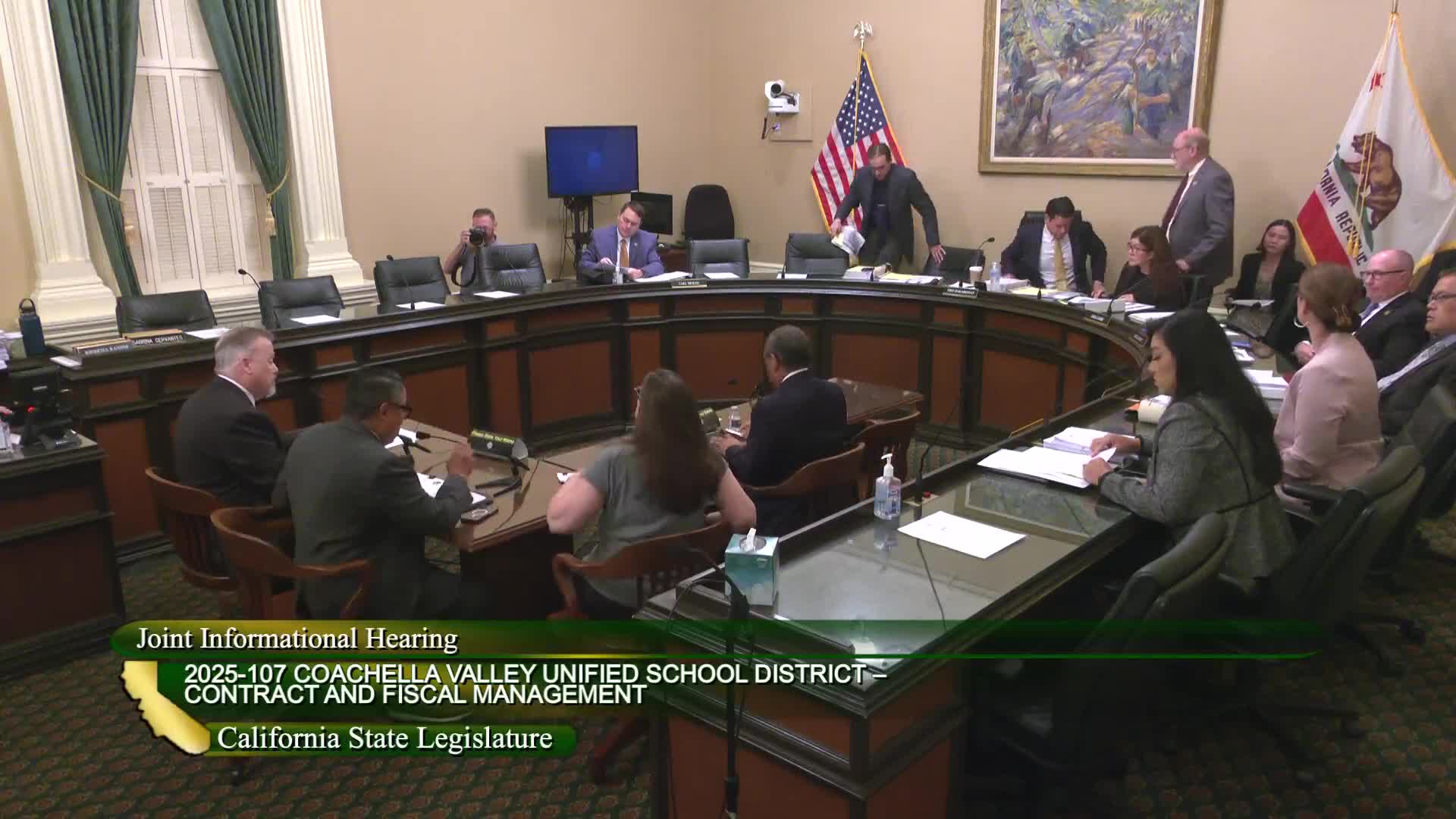Article not found
This article is no longer available. But don't worry—we've gathered other articles that discuss the same topic.
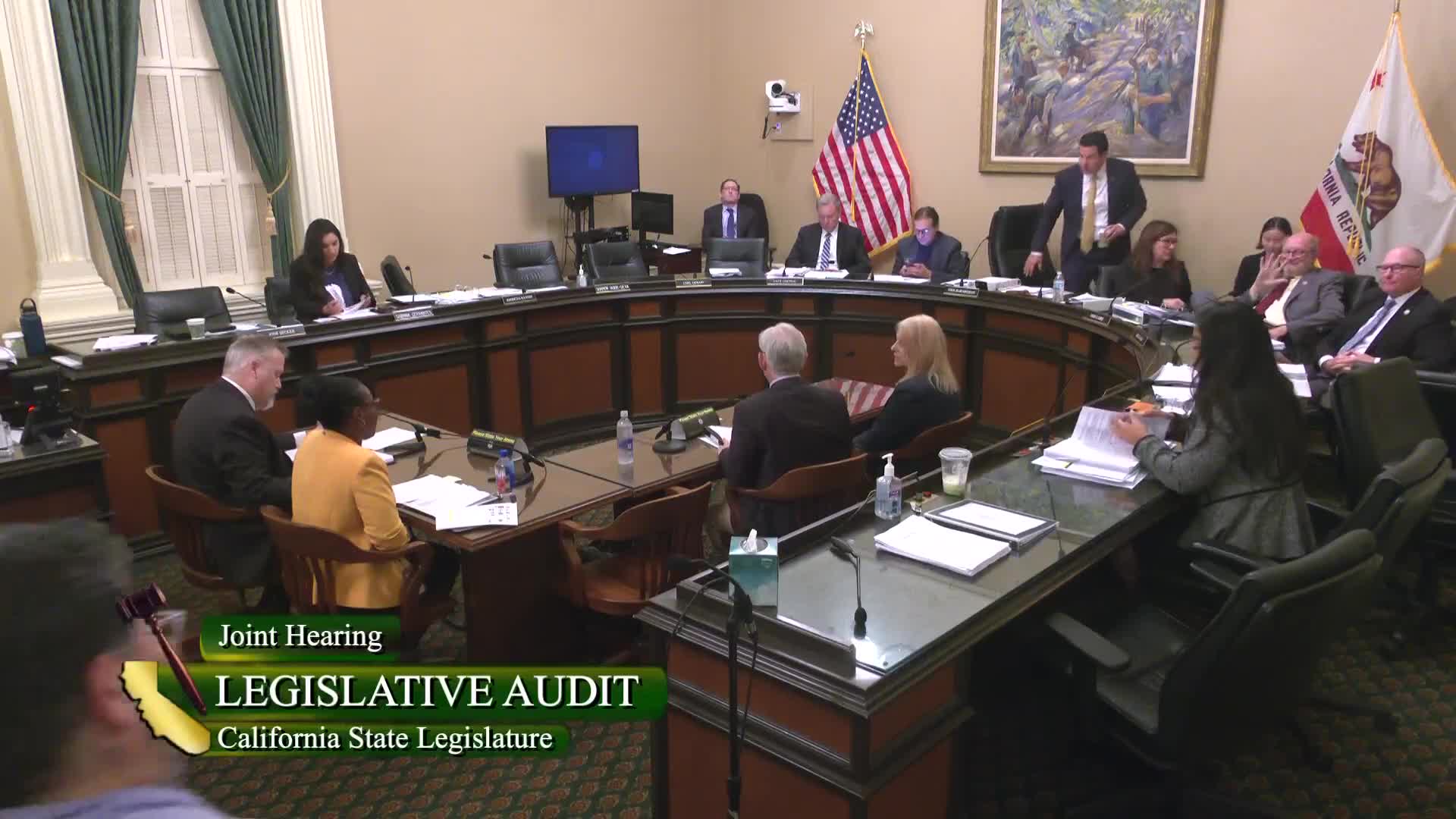
Lawmakers debate audit of Delta Conveyance Project; supporters cite transparency, agencies urge existing oversight
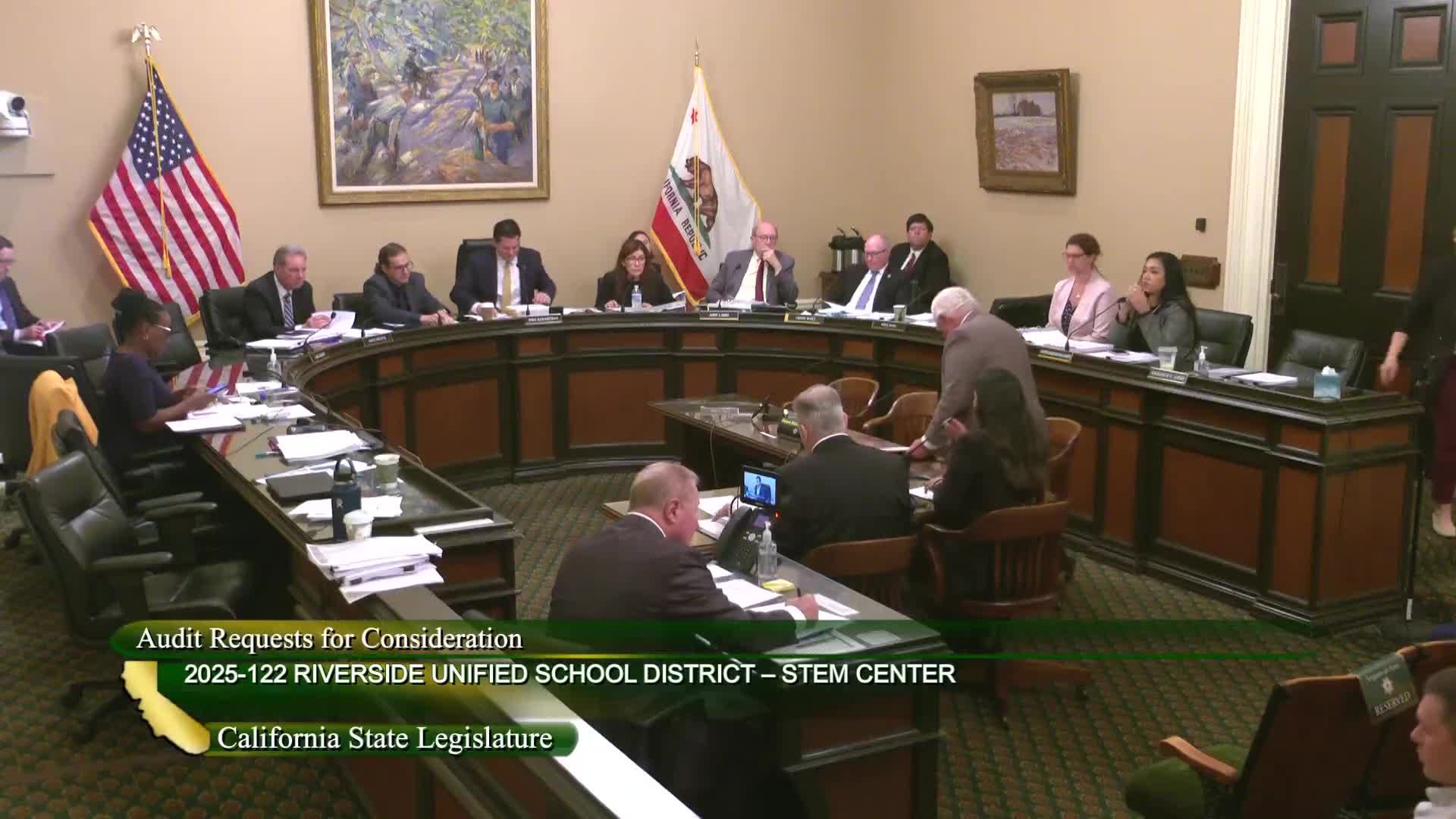
Audit sought over RUSD STEM center funding and process; committee leaves item on call
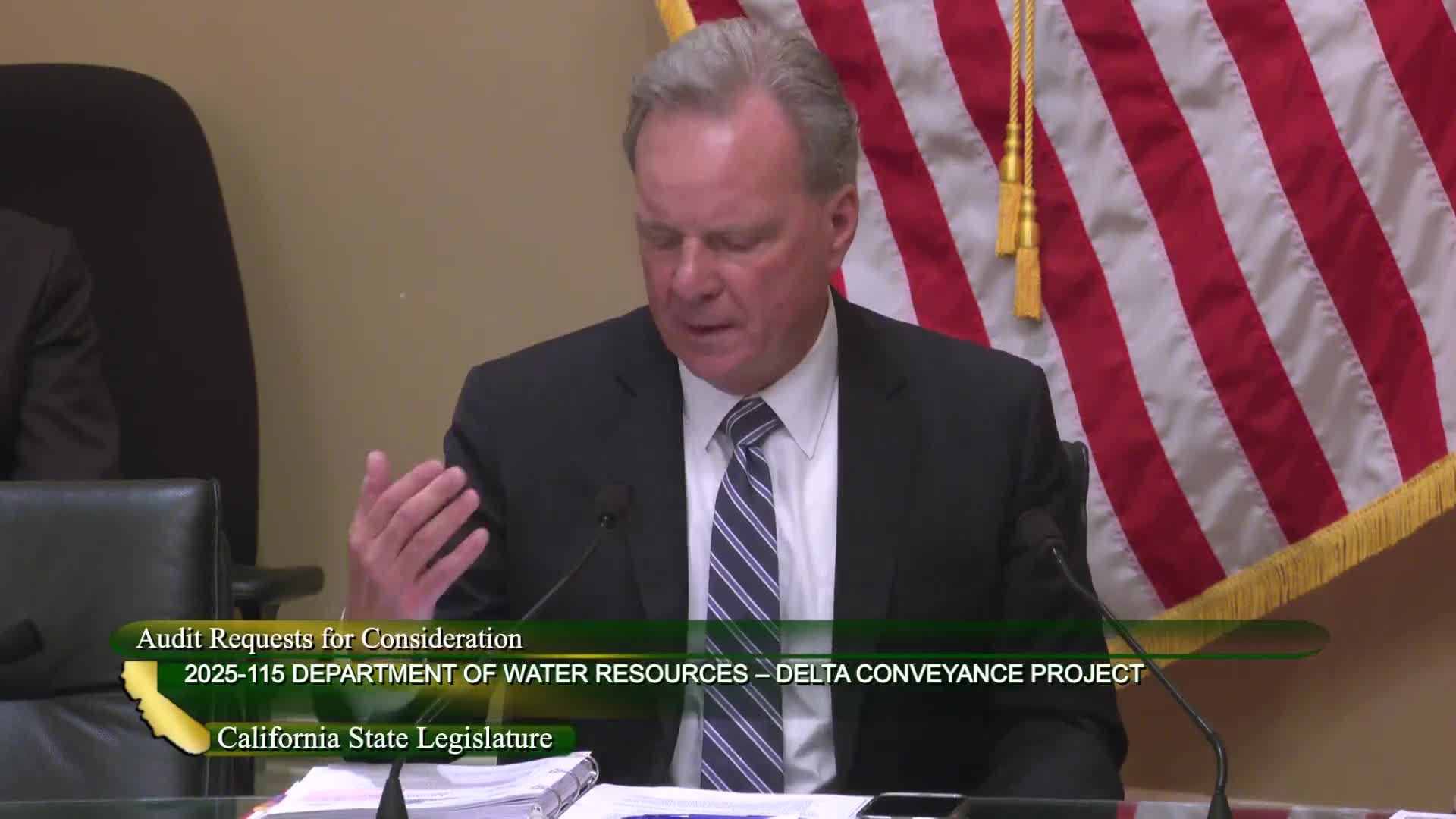
Committee advances victims restitution oversight request; audit remains on call
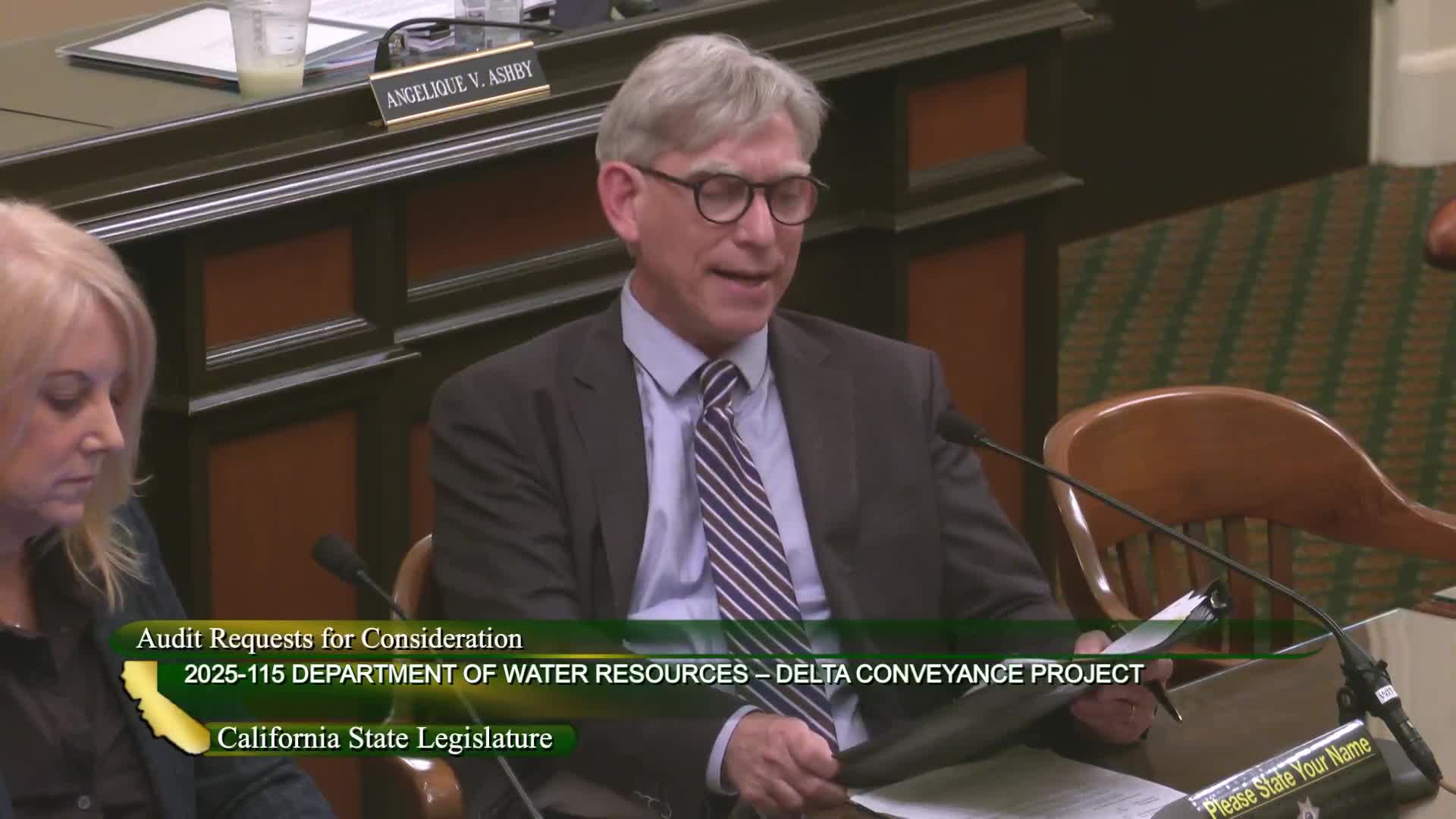
Audit approved to examine large reserve balances held by California community colleges
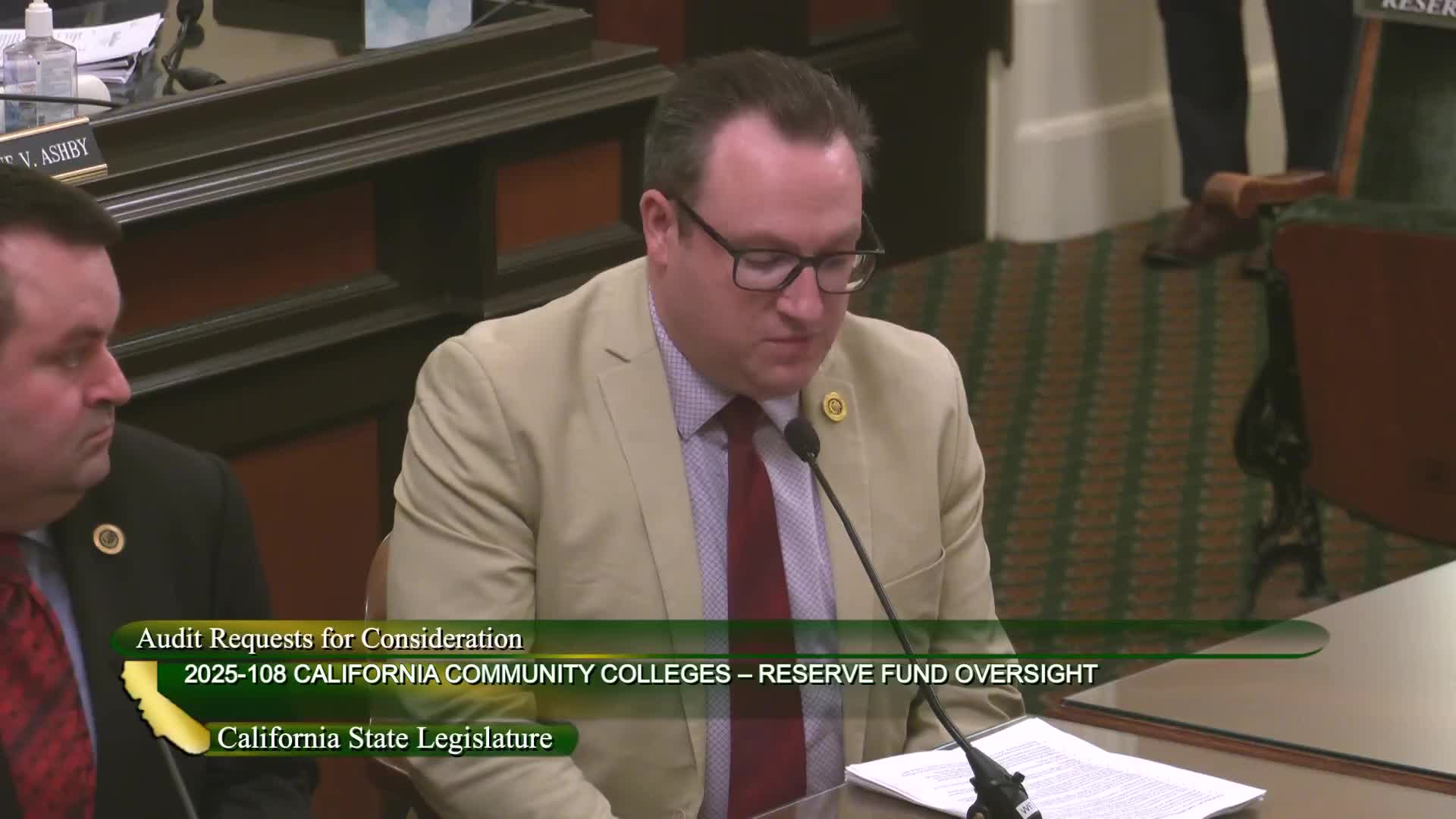
State audit approved to review East Bay transit agencies' coordination, finances and ridership
